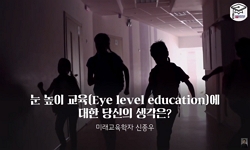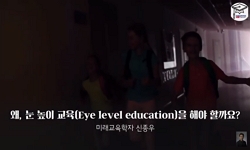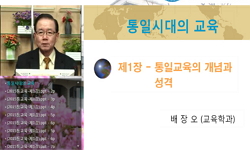The Korean-Dementia Rating Scale (K-DRS), the Korean version of the Dementia Rating Scale (DRS), which is one of the mostly used dementia evaluation tools in North America, has been used to diagnose and identify pathological processes since its develo...
http://chineseinput.net/에서 pinyin(병음)방식으로 중국어를 변환할 수 있습니다.
변환된 중국어를 복사하여 사용하시면 됩니다.
- 中文 을 입력하시려면 zhongwen을 입력하시고 space를누르시면됩니다.
- 北京 을 입력하시려면 beijing을 입력하시고 space를 누르시면 됩니다.

한국판 치매 평가 검사(K-DRS)의 2차 규준 연구 = An Additional Normative Study of theKorean-Dementia Rating Scale
한글로보기부가정보
다국어 초록 (Multilingual Abstract)
The Korean-Dementia Rating Scale (K-DRS), the Korean version of the Dementia Rating Scale (DRS), which is one of the mostly used dementia evaluation tools in North America, has been used to diagnose and identify pathological processes since its development in the late 1990s. Previous studies have proven the reliability and validity of the K-DRS, and provided normative data for two age levels and two educational levels. To interpret the test accurately and apply the test to Korean elderly population, however, researchers need to develop a second version of the normative data, because it has been 10 years since the previous norms were created. This study aimed to establish a new version of the K-DRS norms, based on the newly-collected data, to complement previous norms and to contribute to exact diagnoses. Participants were normal elderly people (N = 785), with the age range 50-89 years. Our results confirmed age and education as the major significant factors for test performance scores, which was consistent with previous studies. The new norms become more specific as we divided the normative data into four age levels and four educational levels.
참고문헌 (Reference)
1 최진영, "한국판 치매 평가 검사의 타당도와 신뢰도 연구" 17 (17): 247-258, 1998
2 최진영, "한국판 치매 평가 검사: Korean-Dementia Rating Scale" 학지사 1998
3 최진영, "한국판 치매 평가 검사(K-DRS)의 규준 연구" 16 (16): 423-433, 1997
4 김향희, "한국판 보스톤 이름대기 검사(Korean version-Boston Naming Test)" 학지사 1997
5 우종인, "한국판 CERAD 평가집" 서울대학교출판부 2003
6 서국희, "한국의 치매: 추세와 추계" 6 (6): 79-87, 2002
7 문혜성, "한국 장노년 성인의 문식성과 신경 심리 기능" 8 (8): 113-120, 2004
8 강연욱, "서울신경심리검사(Seoul Neuropsychological Screening Battery; SNSB)" 휴브알앤씨 2003
9 보건복지부, "보건복지백서" 보건복지부 2006
10 권용철, "노인용 한국판 Mini- Mental State Examination (MMSE-K)의 표준화 연구-제1편: MMSE-K의 개발" 28 : 125-135, 1989
1 최진영, "한국판 치매 평가 검사의 타당도와 신뢰도 연구" 17 (17): 247-258, 1998
2 최진영, "한국판 치매 평가 검사: Korean-Dementia Rating Scale" 학지사 1998
3 최진영, "한국판 치매 평가 검사(K-DRS)의 규준 연구" 16 (16): 423-433, 1997
4 김향희, "한국판 보스톤 이름대기 검사(Korean version-Boston Naming Test)" 학지사 1997
5 우종인, "한국판 CERAD 평가집" 서울대학교출판부 2003
6 서국희, "한국의 치매: 추세와 추계" 6 (6): 79-87, 2002
7 문혜성, "한국 장노년 성인의 문식성과 신경 심리 기능" 8 (8): 113-120, 2004
8 강연욱, "서울신경심리검사(Seoul Neuropsychological Screening Battery; SNSB)" 휴브알앤씨 2003
9 보건복지부, "보건복지백서" 보건복지부 2006
10 권용철, "노인용 한국판 Mini- Mental State Examination (MMSE-K)의 표준화 연구-제1편: MMSE-K의 개발" 28 : 125-135, 1989
11 최진영, "노인 기억 장애 검사: Elderly Memory disorder Scale" 학지사 2007
12 고정민, "고령화사회의 도래에 따른 기회와 위협" 삼성경제연구소 2002
13 Jorm, A. F., "The prevalence of dementia: a quantitative integration of the literature" 76 (76): 465-479,
14 Lucas, J. A., "Normative data for the Mattis Dementia Rating Scale" 20 (20): 536-547, 1998
15 Montogomery, K. M., "Neuropsychological test performance of a normal elderly sample" 1983
16 Visser, P. J., "Mild cognitive impairment as predictor for Alzheimer's disease in clinical practice: effect of age and diagnostic criteria" 38 (38): 113-122, 2008
17 Chey, J., "Medial temporal lobe volume of nondemented elderly individuals with poor cognitive functions" 27 (27): 1269-1279, 2006
18 Rilling, L. M., "Mayo's Older African American Normative Studies: norms for the Mattis Dementia Rating Scale" 19 (19): 229-242, 2005
19 Flynn, J. R, "Massive IQ gain in 14 nations: What IQ tests really measure" 101 : 171-191, 1987
20 Schmand, B., "Low education is a genuine risk factor for accelerated memory decline and dementia" 50 (50): 1025-1033, 1997
21 염태, "K-WAIS 실시요강" 한국가이던스 1992
22 강연욱, "K-MMSE(Korean-Mini Mental State Examination)의 노인 규준 연구" 한국심리학회 25 (25): 1-12, 2006
23 Crane, P. K., "Item response theory facilitated cocalibrating cognitive tests and reduced bias in estimated rates of decline" 61 (61): 1018-1027, 2008
24 Stern, Y., "Inverse relationship between education and parietotemporal perfusion deficit in Alzheimer's disease" 32 (32): 371-375, 1992
25 Capitani, E., "Gender affects word retrieval of certain categories in semantic fluency tasks" 35 (35): 273-278, 1999
26 Chey, J., "Effects of education in dementia assessment: Evidence from standardizing the Korean-Dementia Rating Scale" 13 (13): 293-302, 1999
27 Unverzagt, F. W., "Effects of age, education, and gender on CERAD neuropsychological test performance in an African American sample" 10 (10): 180-190, 1996
28 Garibotto, V., "Education and occupation as proxies for reserve in aMCI converters and AD: FDG-PET evidence" 71 (71): 1342-1349, 2008
29 Orrell, M., "Education and dementia" BMJ 310 : 951-952, 1995
30 Yesavage, J. A., "Development and validation of a geriatric depression screening scale: A preliminary report" 17 : 37-49, 1982
31 Cummings, J. L., "Dementia: A Clinical Approach" Butterworth-Heinemann 1992
32 Mattis, S., "Dementia Rating Scale (DRS): Professional Manual" Psychological Assemssment Resources 1988
33 Stern, Y, "Cognitive reserve" 47 (47): 2015-2028, 2009
34 Marcopulos, B. A., "Cognitive impairment or inadequate norms? A study of healthy, rural older adults with limited education" 11 (11): 111-131, 1997
35 Swabb, D. F., "Brain aging and Alzheimer’s disease, “Wear and Tear” vs. “Use It or Lose It”" 12 : 317-324, 1991
36 White, L., "Association of education with incidence of cognitive impairment in three established populations for epidemiologic studies of the elderly" 47 (47): 363-374, 1994
37 Butler, S. M., "Age, education, and changes in the Mini-Mental State Exam scores of older women: findings from the Nun Study" 44 (44): 675-681, 1996
38 Lee, D. Y., "A normative study of the CERAD neuropsychological assessment battery in the Korean elderly" 10 (10): 72-81, 2004
39 Lyon, M. A., "A comparison between WISC-Ⅲ and WISC-R scores for learning disabilities reevaluations" 28 (28): 253-255, 1995
40 Christensen, K. J., "A cognitive battery for dementia: development and measurement characteristics" 3 : 168-174, 1991
41 Spreen, O., "A Compendium of Neuropsychological Tests: Administration, Norms, and Commentary (2nd ed.)" Oxford University Press 1998
42 통계청, "2007 고령자 통계" 통계청 2007
동일학술지(권/호) 다른 논문
-
한국판 치매 평가 검사(K-DRS)를 이용한 노인인지기능 평가에서 변화유의성 탐지: 50세 이상 장노년 검사-재검사 규준 연구
- 한국임상심리학회
- 김호영
- 2010
- KCI등재
-
메타분석을 활용한 단극성 우울증과 양극성 우울증의 인지기능 비교: 언어적 기억력과 전두엽관리기능을 중심으로
- 한국임상심리학회
- 최선
- 2010
- KCI등재
-
지각된 부모의 양육행동과 청소년 우울증상과의 관계: 역기능적 도식과 회피 대처의 매개 효과
- 한국임상심리학회
- 김은정
- 2010
- KCI등재
-
불안애착과 회피애착이 대인관계문제에 미치는 영향: 우울경험양식의 매개효과
- 한국임상심리학회
- 박영주
- 2010
- KCI등재
분석정보
인용정보 인용지수 설명보기
학술지 이력
| 연월일 | 이력구분 | 이력상세 | 등재구분 |
|---|---|---|---|
| 2026 | 평가예정 | 재인증평가 신청대상 (재인증) | |
| 2020-01-01 | 평가 | 등재학술지 유지 (재인증) |  |
| 2017-01-01 | 평가 | 등재학술지 유지 (계속평가) |  |
| 2016-03-22 | 학술지명변경 | 한글명 : 한국심리학회지 임상 -> Korean Journal of Clinical Psychology |  |
| 2016-02-16 | 학술지명변경 | 외국어명 : The Korean Journal of Clinical Psychology -> Korean Journal of Clinical Psychology |  |
| 2014-04-10 | 학회명변경 | 영문명 : The Korean Society Of Clinical Psychology -> Korean Clinical Psychology Association |  |
| 2013-01-01 | 평가 | 등재학술지 유지 (등재유지) |  |
| 2010-01-01 | 평가 | 등재학술지 유지 (등재유지) |  |
| 2008-01-01 | 평가 | 등재학술지 유지 (등재유지) |  |
| 2006-01-01 | 평가 | 등재학술지 유지 (등재유지) |  |
| 2005-01-27 | 학회명변경 | 한글명 : 한국심리학회 산하 임상심리학회 -> 한국임상심리학회 |  |
| 2004-01-01 | 평가 | 등재학술지 유지 (등재유지) |  |
| 2001-01-01 | 평가 | 등재학술지 선정 (등재후보2차) |  |
| 1998-01-01 | 평가 | 등재후보학술지 선정 (신규평가) |  |
학술지 인용정보
| 기준연도 | WOS-KCI 통합IF(2년) | KCIF(2년) | KCIF(3년) |
|---|---|---|---|
| 2016 | 1.36 | 1.36 | 1.6 |
| KCIF(4년) | KCIF(5년) | 중심성지수(3년) | 즉시성지수 |
| 1.69 | 1.77 | 2.966 | 0.3 |




 KCI
KCI







